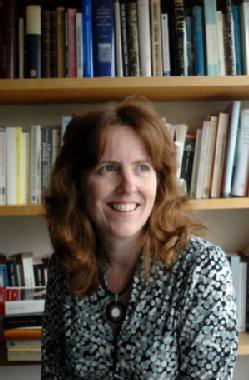History Head Start - Option 11
|
These readings were chosen (and partly written!) by a member of our Warwick History department, Professor Sarah RichardsonLink opens in a new window. Sarah's research interests cover a range of things in political, constitutional and gender history, and has published many books, articles and has appeared in a range of media - you might have recently heard her on the History Extra podcast, talking about 'Everything you ever wanted to know about the Victorians, but were afraid to askLink opens in a new window'! Amongst other things, Sarah researches and teaches about women and citizenship in Britain - which is what this week's readings are looking at. She is involved in a ‘crowd sourcing’ project with mappingwomenssuffrage.org.ukLink opens in a new window, which is mapping as many suffrage activists as possible with links to their census entries and other material if it's available. This article, blog post, and related questions are raising important themes about women's suffrage around the end of the nineteenth and beginnings of the twentieth century. |
|
Sarah Richardson - 'When Did Women Get the Vote?'Link opens in a new window
Pat Thane - 'What difference did the vote make? Women in public and private life in Britain since 1918'Link opens in a new window
Please read the above blog post and article, and then answer the following questions:
- According to Sarah Richardson, what evidence is there for women voting before 1918?
- When and where could women vote before 1918?
- Why did it take so long for women to get the vote?
- Did getting the vote make a difference?
- Is Pat Thane too pessimistic about the impact of women gaining the vote in 1918?
General Information:
Remember: academic journal articles can be difficult and complicated pieces of writing, It may take some time to read through and don’t be surprised if you need to have a few goes at it. This is normal!
To help you, use the list of questions to guide your thinking as you read the article. You should be thinking about what has been written, to assess for yourself whether it makes sense, whether it is backed up with supporting evidence, and whether you agree with it.
Tips for Reading
History Articles:
- 'Reading for Historical Research', Dr Rosie Doyle, University of Warwick
- Study Skills: Critical Reading
- Academic Skills: Reading and Note-Taking
- Student Blogs: What Is Critical Thinking? (Written by a Warwick Law student, this blog post contains some good points about thinking critically about journal articles!)

